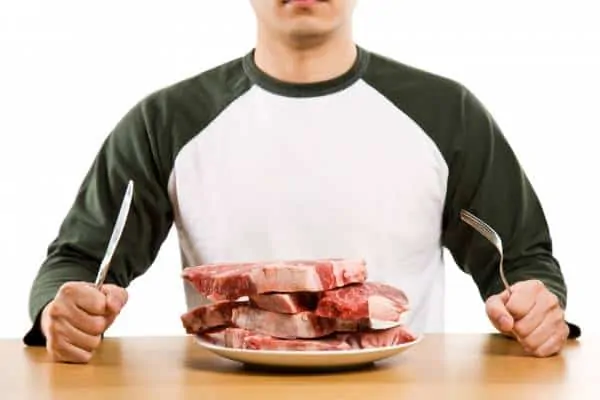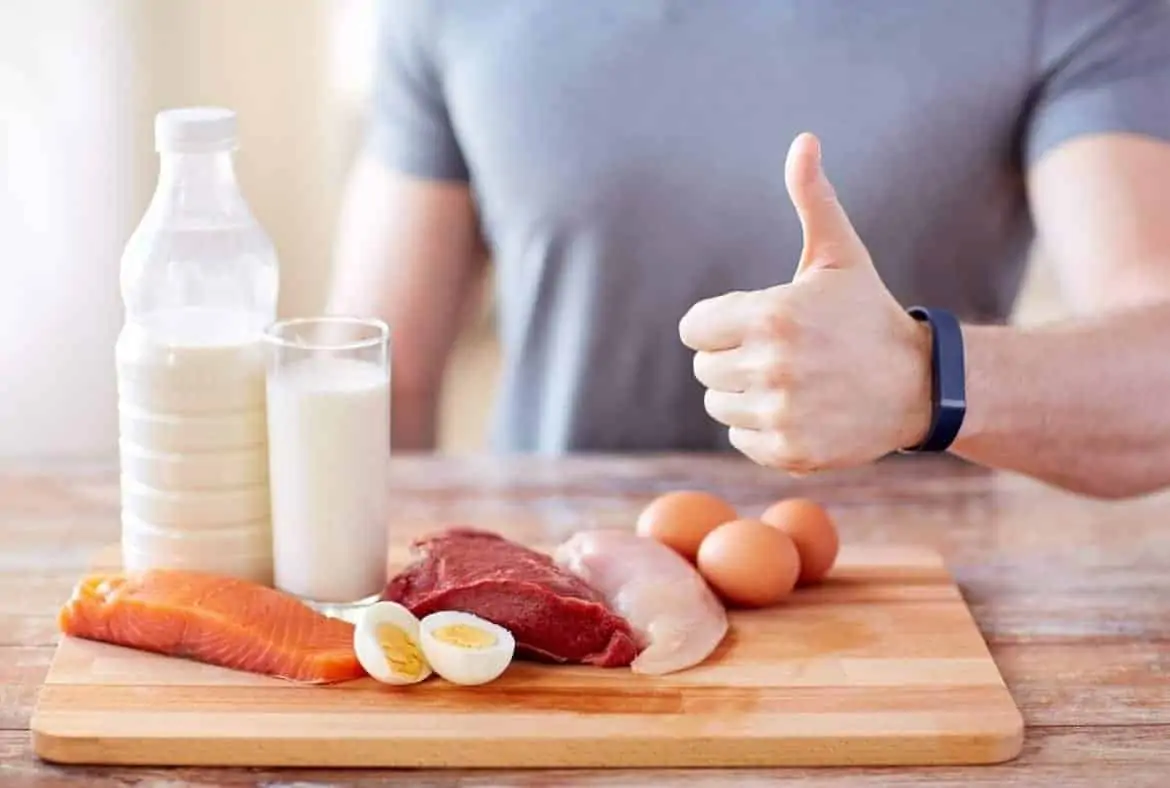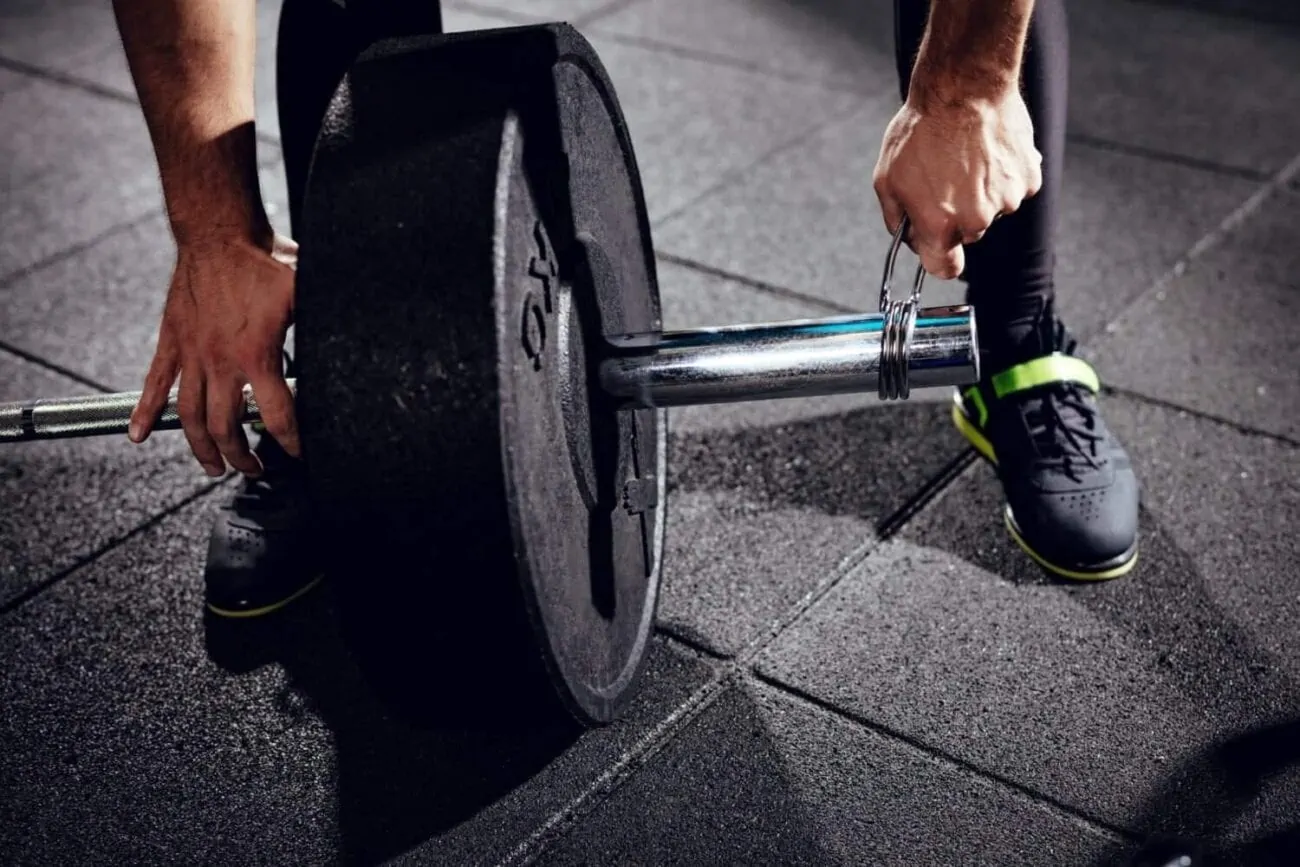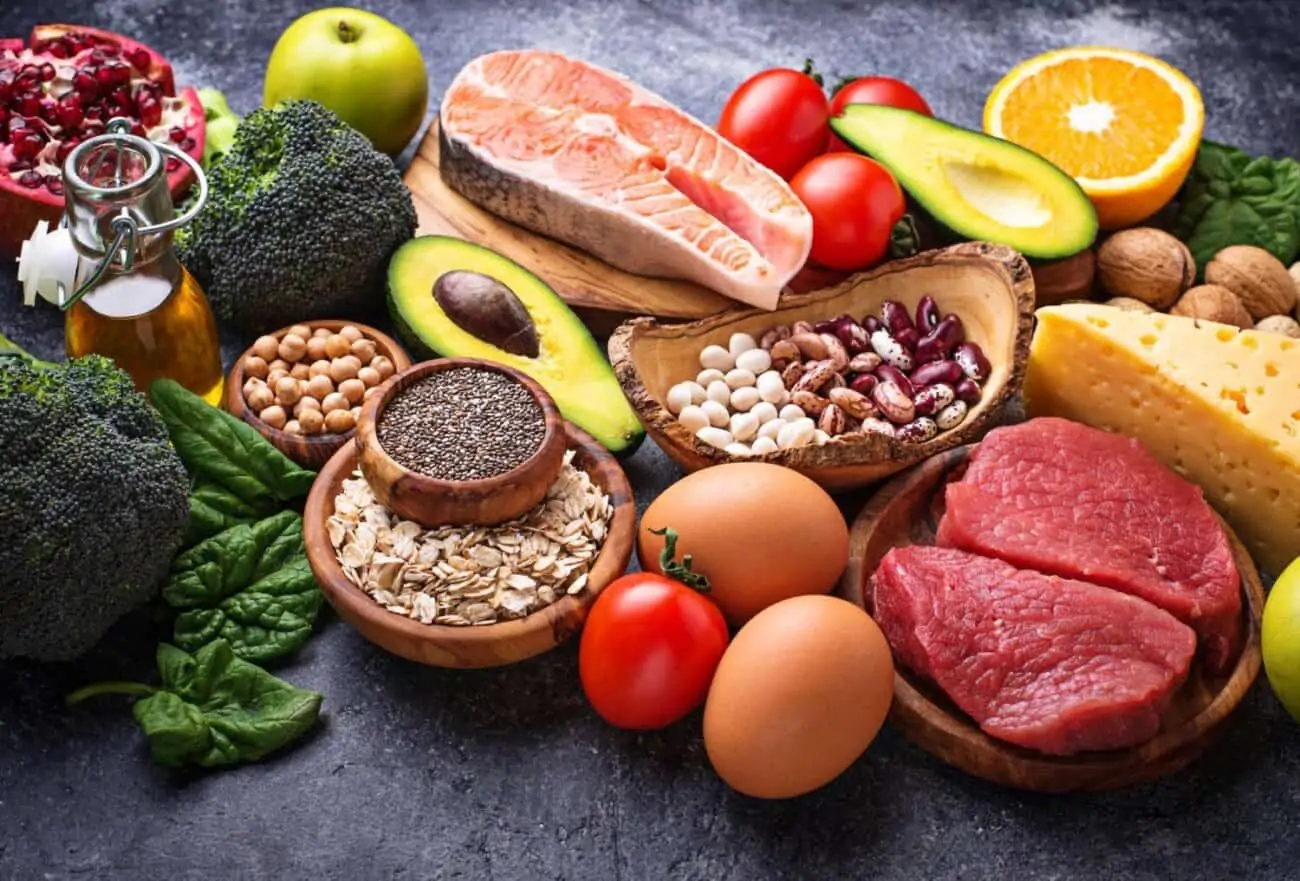Find out in this article how much protein per day you need to eat
Whether your goal is to gain muscle mass or lose fat, you need a good amount of protein.
You know it's essential, you probably even know the best foods to achieve it, but, Do you know how much protein you need to ingest daily?
This is the question you must know how to answer, and depending on your goal, your protein intake may vary.
The article is aimed at healthy people looking to gain muscle mass or lose fat, and focuses above all on gym users.
Let's start with fat loss.
Protein for fat loss
It's not just to gain muscle mass that you need protein, it's also essential for those who want to lose fat.
If you don't use enough protein, you run the risk of losing too much lean mass, and as a result, the results in the mirror will be inferior, but not only that.
The more muscle mass you have, the more calories you burn, so your fat burning progress will also be faster.
Furthermore, it is important to recover from training and keep your appetite under control.
If you're having trouble controlling your appetite on your fat loss diet, take a look in this article.

How much protein should you use when you want to lose fat?
When you want to lose fat, it makes sense that your protein intake is higher.
Why?
There are several reasons for this.
Although carbohydrates and fats are the body's main sources of energy, when you're looking to lose fat, lower your calories and follow a diet. hypocaloric diet.
To lower your calories, you need to reduce the amount of macronutrients you eat, which is why you start reducing carbohydrates and fats.
When you do this, and especially in more advanced stages, or more aggressive diets, the body starts to use more protein as an energy source, which can lead to significant loss of muscle mass.
Furthermore, cardio is normally used at this stage, which means more training, and a greater need for recovery.
This study compared the differences between a fat loss diet with 1g of protein per kilo of body weight, in relation to a diet with 2.3g of protein/kg.
The conclusion was simple, the group that used more protein lost less lean mass.
Ok, how much protein do I use then?
A simple method to know how much protein you should use is to go to the nearest scale and weigh yourself.
Take that number and multiply it by something between 2.3g and 2.8g.
This is the amount of protein you should use to lose fat and maintain your muscle mass.
Example.
Vasco weighs 80kg and is determined to lose fat, but he doesn't want to lose the muscle mass he worked so hard to gain.
He took out his cell phone and did a simple calculation to find out how much protein he should use in his diet.
80 x 2.5 = 200
Therefore, Vasco, weighing 80kg, decided to multiply by 2.5g of protein, which means he will consume 200g of protein daily to achieve good results.
Note. Start with a lower value, between 2.3g and 2.5g, and if necessary, increase up to 2.8g.

Protein and muscle mass gain
If your goal is to gain muscle mass, you can reduce your protein consumption compared to the fat loss phase.
Yes, you read that right, you can reduce protein.
But not excessively.
This happens because the body, as we mentioned previously, uses above all carbohydrates and fats as a source of energy.
To gain muscle mass, you need a hypercaloric diet, rich not only in protein, but also in these two macronutrients.
Taking into account that the body has an excess of calories, and enough carbohydrates and fats, it will depend little on protein to give it energy.
In other words, the protein you use will mostly be used for what interests you, gaining muscle mass.
How much protein should I use then?
Well, you can reduce it, but not too much.
The method does not change, and therefore, you need to know your body weight.
Once you know your weight, multiply it by a value between 1.8g and 2.3g.
This means that you will consume between 1.8g and 2.3g of protein per kilo of body weight.
Example.
Tiago, unlike Vasco, wants to gain muscle mass, he is not satisfied with his 70kg and wants more muscle.
Your account is as follows.
70 x 2.1 = 147
When using the value of 2.1g of protein, Tiago came to the conclusion that he will need 147g of protein to have good results.
Note. Start with the lowest values, between 1.8g and 2.1g, and if necessary, increase up to 2.3g.

Conclusion
Protein is undoubtedly fundamental to successfully achieving your goals, and knowing how much protein you need per day is essential to achieve the best results.
As you may have understood from the article, it is not very complicated to calculate your daily protein needs.
Weigh yourself and multiply your weight by a value appropriate to your goal.
These values are just general suggestions, which work in most cases, but they are not sacred numbers, and you may need to adapt them.
This does not mean that 10g per kg is a good idea and will bring you extra results.
Finally, don't forget that your diet isn't just about proteins, and also eat enough carbohydrates and fats.



